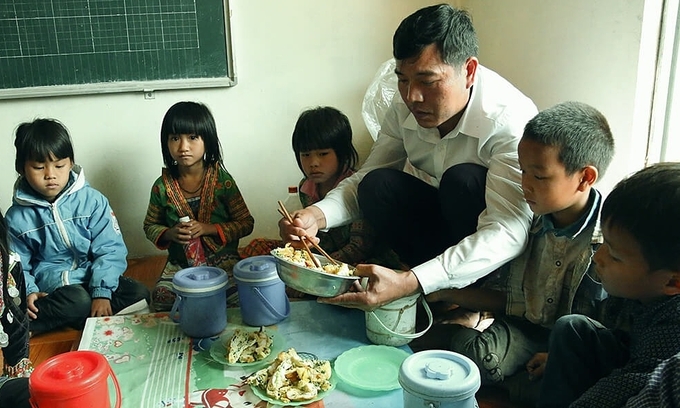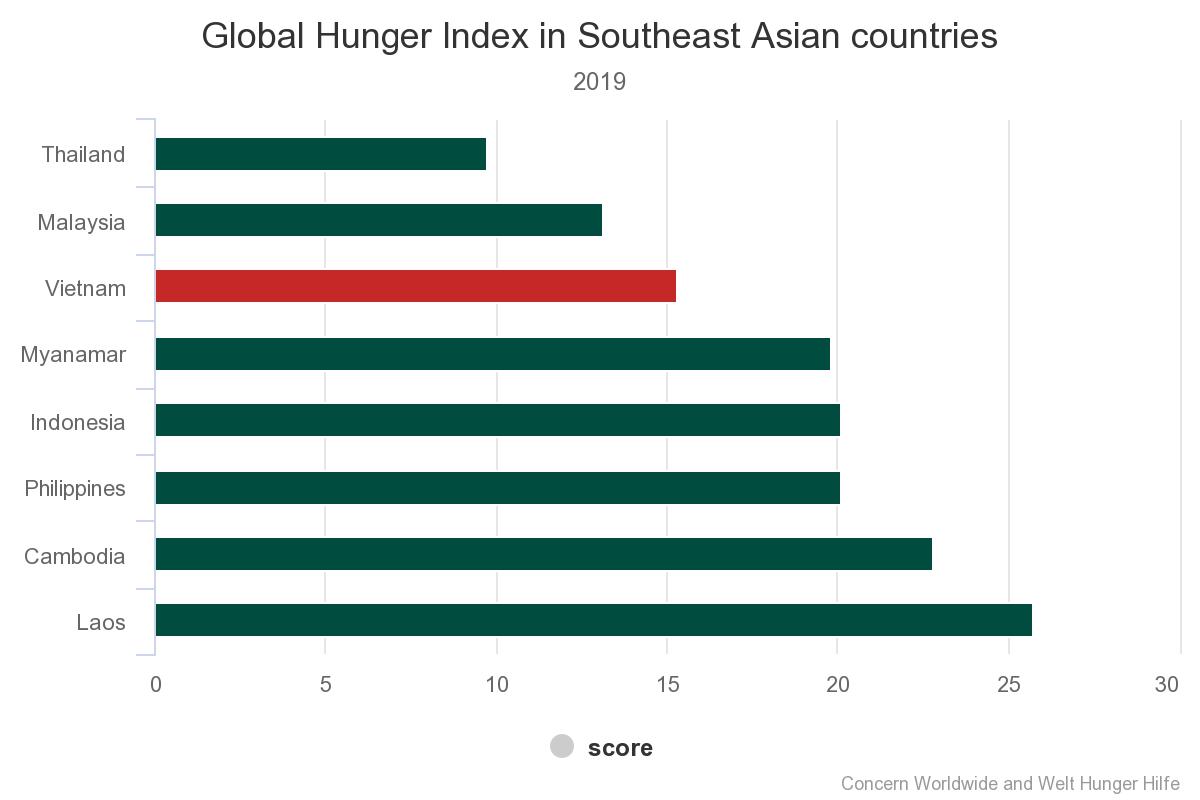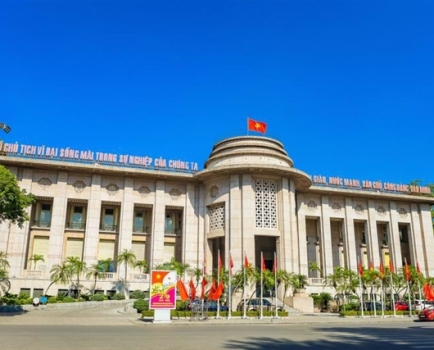Vietnam improves position on global hunger index
Tue, 22 Oct 2019 15:38:00 | Print | Email Share:

serves his students lunch with fried eggs. Photo by VnExpress/Thanh Duong.
Vietnam has made significant improvement in global hunger score to rank 62nd out of 117 economies in a global hunger ranking, ahead of several Southeast Asian peers.
With an overall score of 15.3 out of 100, the level of hunger in Vietnam has been classified as ‘moderate,’ according to the Global Hunger Index (GHI) 2019 report released last week by Irish aid agency Concern Worldwide and German organization Welt Hunger Hilfe.
The index measured 117 countries and territories around the world to compare the levels of hunger between countries and regions, and to call for more efforts in the areas with greatest need of additional resources to eliminate hunger.
The GHI score was calculated based on four indicators, including undernourishment, child wasting, child stunting and child mortality. The higher a country's GHI score, the worse off it is. A score of 0 would indicate zero hunger in the country.
Vietnam has made substantial improvements to have its global hunger score fall from 28.3 in 2000 to 15.3 this year. Last year, Vietnam's level of hunger was also ranked ‘moderate’ with an overall score of 16, putting the country in 64th position among 119 economies.
This year, the country fared better than several Southeast Asian neighbors: Myanmar (69th), Indonesia (70th), the Philippines (71st), Cambodia (77th) and Laos (87th).
In Southeast Asia, Vietnam stood behind Thailand (46th) and Malaysia (57th). Singapore was not ranked in the index due to its small population.

The report showed that the proportion of undernourished population in Vietnam has decreased from 24.3 percent in 2000 to 9.3 in 2019.
The proportion of children under five years old suffering from wasting dropped from 9 percent in 2000 to 6.4 percent this year while the nation's child stunting rate has been cut by nearly half from 42.9 percent in 2000 to 24.6 in 2019, the report said.
The Vietnamese government has taken many steps to reduce malnutrition and eliminate hunger. Last year, the country launched a Zero Hunger program that seeks to lower malnutrition rates and stunted growth through improved nutrition and sustainable food production.
However, the World Bank and the United Nations Children’s Fund (UNICEF) recently called for the Vietnamese government to make greater efforts to fight child malnutrition by funding nutrition-related programs, building multi-sector plans to address the underlying determinants of undernourishment and making early interventions.
According to UNICEF, more than 230,000 children under five years old in Vietnam suffer from severe acute malnutrition every year, which is a major cause of stunting and death in that group.
In Vietnam, extreme poverty dropped to 2 percent in 2016 but poverty remains widespread among ethnic minorities, according to a report released by the Ministry of Labor, Invalids and Social Affairs and the United Nations Development Program (UNDP) late last year.
Meanwhile, the world's second most populous country, India, continued to slide down the rankings, slipping to 102 on this year’s index where its level of hunger was ‘extremely alarming,’ way behind its South Asian neighbors: Pakistan (94), Bangladesh (88), Nepal (73) and Sri Lanka (66).
The world's most populous country, China, ranked 25th.
India's poor ranking in the Global Hunger Index has come in for sharp criticism, with the opposition calling it a "colossal failure of government policy," the Indian Express reported.
It cited senior Congress leader Kapil Sibal as saying Prime Minister Narendra Modi should concentrate less on politics and more on the children in the country.
By: Nguyen Quy/VnExpress
---------------------------------------------
Same category News :













